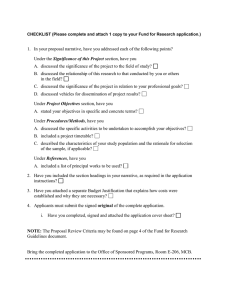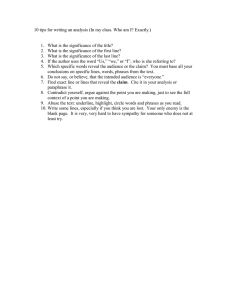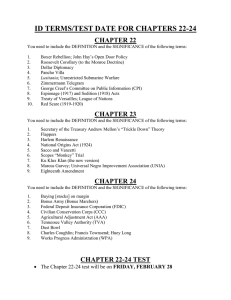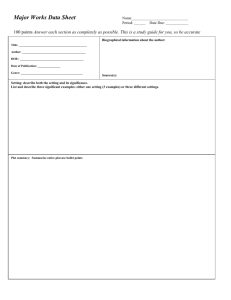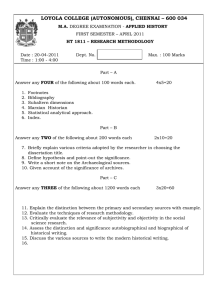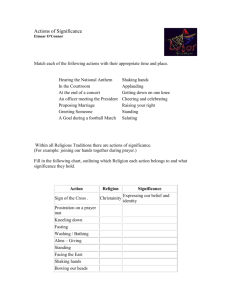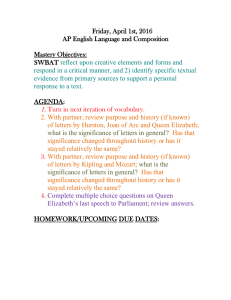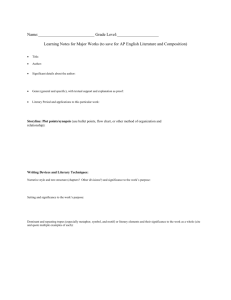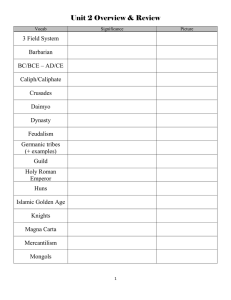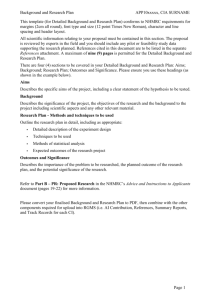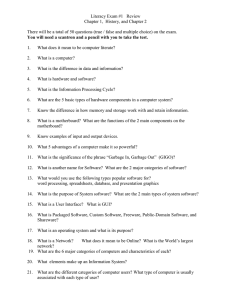National History Day Guidelines
advertisement
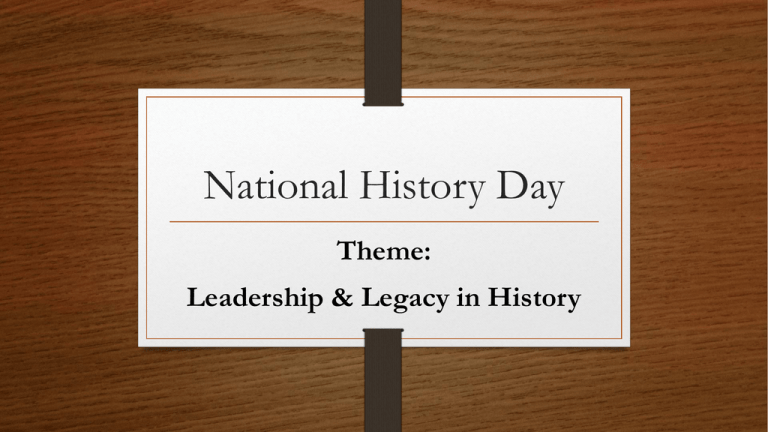
National History Day Theme: Leadership & Legacy in History What is leadership? “A true leader has the confidence to stand alone, the courage to make tough decisions, and the compassion to listen to the needs of others. He does not set out to be a leader, but becomes one by the equality of his actions and the integrity of his intent.” (General Douglas MacArthur) What is a legacy? • Definition: anything handed down from the past, as from an ancestor or predecessor. • Example: ?? What is history? “History” = His story (or Her story) a continuous, systematic narrative of past events as relating to a particular people, country, period, person, etc., usually written as a chronological account; chronicle Explain the following quote: “Those who do not study history are doomed to repeat it.” Where do I start?! FIND A TOPIC THAT INTERESTS YOU! Reflect on and analyze the questions that you ask about the world and how things came to be. Consider the 8th grade curriculum…we are going to stay within the context of American history. (No, it does not have to be limited to Georgia.) Broad topics… • • • • • • political history social history military history economic history religious history cultural history diplomatic history women’s history public history history of government rural history family history ethnic history labor history urban history history of education history of the common man intellectual history demographic history environmental history I would like to study… • Governments, laws, and who is in control How people lived • How money affects peoples’ lives How ideas develop in society • How people worship and express religious beliefs How militaries operate How ordinary people live Art, culture, music, sports and other forms of entertainment • How nations agree or disagree with each other How the physical world influences how people live • How women and other groups earned equal rights in society • What happens when large groups of people move from one part of the world to another • The growth and development of cities The development of the rural parts of a nation • The history of a particular group of people within a larger society • The story of my family’s roots The way workers operate How governments develop and change over time Topic Proposal Form • Part 1: Proposal Description—Who / what do you want to study? • Part 2: Personal Interest—Why are you interested in studying this person / event /idea? Submit three research questions that you hope to answer in the course of your research. • Part 3: So What?—Why is this important enough for you to research and present? How does your question represent an enduring issue in history? Topic Proposal Form (continued) • Part 4: Significance in History—Describe why this person/event is important—explain the historical significance. Give three clear reasons why this was important to history at a local, state, national, or international level: • What primary source helped you to establish this significance? • How do you know this is a reliable source? • What secondary source helped you to establish this significance? • How do you know this is a reliable source? Part 5: What are some credible sources you can use for your research? Topic Proposal Form (continued) • Part 6: What type of project do you plan to do? http://www.nhd.org/CreatingEntry.htm • • • • • Documentary Exhibit Paper Performance Web Site Project Checkpoints September 19, 2014: Topic Proposal Form due. Use the guidelines in this presentation to complete your TPF. Other due dates will depend upon your individual or group project. January 30, 2015: Project due
